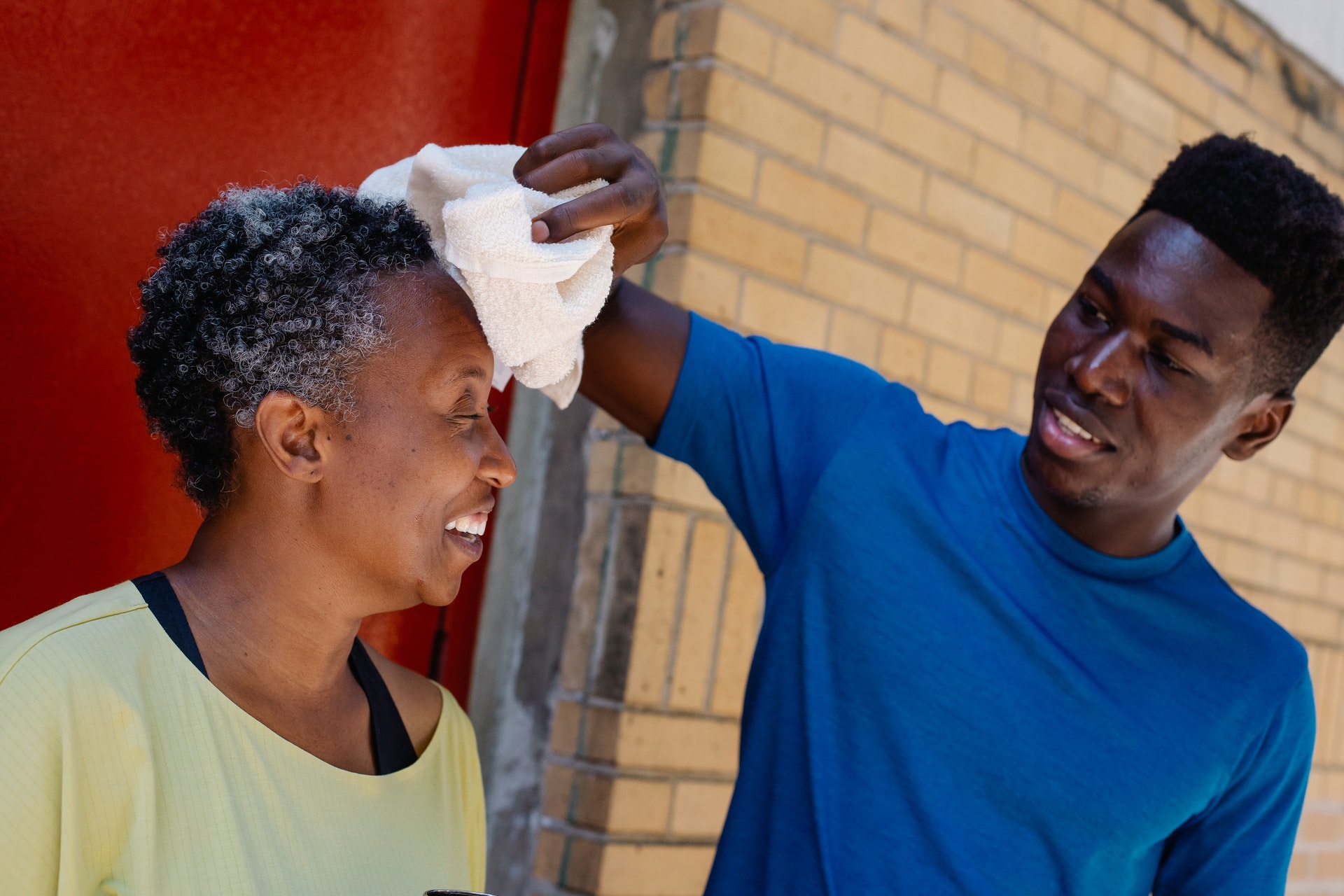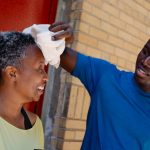
Is it accurate to say that you are in peril for heat-related illness or already giving signs of one? Examine this summary so you understand how to take action.
In each and every environment condition, the body attempts to keep a normal temperature of 98.6 degrees. Right when temperatures are extraordinary, whether or not it’s a consuming summer day or a freezing winter morning, it might be extensively more difficult for your body to stay aware of this ideal temperature.
“In reality, even exceptionally still, the human body makes a huge load of warmth energy,” says Eric Buete, MD, the clinical head of AFC Urgent Care in Sarasota, Florida. Right when it’s cool, your body will expel this glow through radiation. “The glow simply communicates from the body to the incorporating air,” explains Dr. Buete.
Exactly when it’s hot, your body sweats to keep you cool. Sweat ascends to the highest point of your skin. As it disseminates, you begin to feel cooler, as demonstrated by Houston Methodist. Exactly when it’s tacky outside, it’s harder for the perspiration outwardly of your skin to disappear, considering the way that the air is as of now inundated with moistness. That is the explanation people consistently say it’s not the glow but instead the tenacity that makes it unbearable to be outside on a hot day — anyway both accept a section in your body’s overheating.
In various cases, sweat may occur without an external trigger in any way shape or form.
Acknowledging whether you’re at a higher-than-normal risk for heat-related illness, similarly as what may be behind your signs, can assist you with acknowledging what move to make.
This overview of fast truths is a nice spot to start.
1. Ridiculous Heat Is Dangerous — and Sometimes Deadly
In a standard year, around 618 Americans fail horrendously from ridiculous warmth, according to the Centers for Disease Control and Prevention (CDC). Seniors, little young people, and people with mental maladjustment and consistent conditions like coronary ailment are all things considered imperative risk, the CDC says, and contenders, outside workers, and people working at a benefit Black, Indigenous, and People of Color (BIPOC) social class are particularly weak.
2. Men Sweat More Than Women
While women have more sweat organs than men, as shown by the U.S. Public Library of Medicine, men’s sweat organs are more unique, driving them to sweat more than women. The more you sweat, the more viably you can become got dried out, which can provoke other clinical issues, Buete says.
3. You Have Up to 4 Million Sweat Glands in Your Body
That is according to the International Hyperhidrosis Society. There are two kinds of sweat organs: eccrine and apocrine. Both produce fluids. The space of the frontal cortex known as the operational hub controls your interior warmth level by guiding sweat yield and circulation system to the skin. The aroma related with sweat comes from the apocrine organs found in the armpits and genital locale; the sweat from these organs makes a smell when it collaborates with microorganisms on the skin.
4. Warmth Exhaustion Occurs When Your Body Overheats
Advised signs of warmth consumption include: wooziness, affliction, regurgitating, fatigue, powerful sweating, and headache, seen the CDC. To treat heat weakness, move to a cool region, drink heaps of water, and assimilate a cool shower or use cool packs.
5. Being Overheated Can Lead to Heatstroke, a Life-Threatening State
Heatstroke can happen when your inward warmth level arrives at somewhere near 104 degrees; presently, your body loses the ability to oversee temperature in isolation, as shown by the American Academy of Family Physicians (AAFP). Signs of heatstroke join muscle crushing, a fast heartbeat, disgorging, flushed skin, headache, mental confusion, and seizures, per the CDC. Cancel 911 on the possibility that you see someone experience these signs. Likewise similarly as with heat consumption, someone experiencing heatstroke should be moved to a cooler spot and given a shower of cool water or packs.
6. You Can Protect Yourself From Heatstroke by Staying Hydrated
“Drink before you are dry,” Buete says. In preposterous warmth, it’s ideal to avoid caffeine and alcohol, the American Academy of Family Physicians urges. Wear free clothing that allows the air to course around you as you work out, and make an effort not to rehearse outside during the most smoking piece of the day, which is routinely from 11 a.m. to 6 p.m. In light of everything, plan your activity as close to day break or sunset as could be anticipated.
7. Infants and Small Children Are at High Risk of Heat-Related Illnesses
This is legitimate for a couple of reasons, Buete says. They can’t deal with their present situation (in the event that they’re left in a room that is hot, for example); they have a high metabolic rate, which infers their bodies are conveying heat ceaselessly; and they can’t perspire as much as adults, Buete says. Never leave a young person in a left vehicle, even with the windows open.
8. Certain Groups of Adults Are Also at an Elevated Risk of Illness From Extreme Heat
That fuses the people who are jelly belly molded, the old, and people who are steady, Buete says. People with diabetes can be heat sensitive, too, says Matthew Corcoran, MD, CDCES, who is the clinical top of the Joslin Diabetes Center accomplice at Atlanticare in Egg Harbor Township, New Jersey. “In case you have diabetes and you become dried out from the glow, it can impact your glucose levels,” says Dr. Corcoran. Make sure to keep insulin and other diabetes solutions out of the glow, as hot temperatures can obliterate them, he adds. People with various sclerosis may find that their signs crush when they’re hot. Exactly when warmth raises a person’s interior warmth level, it turns out to be all the more eagerly for the central tangible framework to work suitably.
9. A couple of Medications Can Put You at Increased Risk of Heatstroke
These join a couple of kinds of extreme touchiness medications and antihistamines, heartbeat and heart solutions, diuretics, intestinal prescriptions, antidepressants, and seizure drugs, as shown by the AAFP. Talk with your PCP about what security measures are huge on the off chance that you’re taking any of these.
10. Around 3 Percent of the Population Has a Health Condition That Causes Excessive Sweating
Called hyperhidrosis, this condition depicted by overactive sweat organs, which cause luxurious sweating, according to the Center for Sweat Disorders at Johns Hopkins Medicine. This infirmity can be procured or achieved by different illnesses or sedates, and can occur without a trigger from heat. Medications for hyperhidrosis fuse oral and skin prescriptions, Botox imbuements, and an approach that uses ability to unwind the sweat organs. If these prescriptions are not amazing, you may discuss cautious decisions with your essential consideration doctor.






